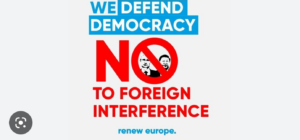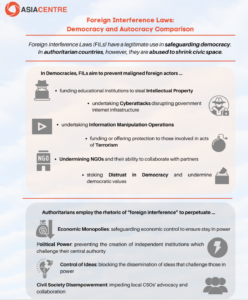 The European Commission today launched a public consultation on protecting the EU democratic sphere from covert foreign interference. The public consultation, open until 13 April 2023, will gather views of different stakeholders on what is needed to bolster democratic resilience and the results will feed into the ‘Defence of Democracy’ initiative.
The European Commission today launched a public consultation on protecting the EU democratic sphere from covert foreign interference. The public consultation, open until 13 April 2023, will gather views of different stakeholders on what is needed to bolster democratic resilience and the results will feed into the ‘Defence of Democracy’ initiative.
Australia’s government plans to “out” foreign interference operations that are targeting politicians, academics and community leaders, Home Affairs Minister Clare O’Neil said on Tuesday, Reuters reports. Foreign interference is a core threat to democracy and the country is facing “enormously significant geopolitical challenges”, she said in a speech to the Australian National University’s National Security College.
 A University Foreign Interference Taskforce was working with the Australian Security Intelligence Organisation (ASIO) to deal with “real and increasingly sophisticated” threats. “It should be no secret or surprise the university sector is a target of foreign interference,” O’Neil said.
A University Foreign Interference Taskforce was working with the Australian Security Intelligence Organisation (ASIO) to deal with “real and increasingly sophisticated” threats. “It should be no secret or surprise the university sector is a target of foreign interference,” O’Neil said.
Democracies can take tangible steps to pre-empt and prevent autocratic states’ influence operations and other forms of “sharp power” from undermining democratic institutions and norms, according to a new report from Australia’s Counter Foreign Interference Coordination Centre (CFICC), Countering foreign interference in institutions of democracy.
 Elected officials and government officials at all levels of government can protect themselves and democratic institutions from the risk of foreign interference by engaging in appropriate due diligence including:
Elected officials and government officials at all levels of government can protect themselves and democratic institutions from the risk of foreign interference by engaging in appropriate due diligence including:
- Understanding relationships – knowing the people they work with and possible associations they might have with foreign powers, their position on sensitive policy matters and any history they might have in terms of sensitive legal and ethical issues.
- Being open and transparent in interactions – abiding by professional obligations by making appropriate declarations of interest and acting in accordance with the code of conduct. Relationships conducted in an open, lawful and transparent manner are less likely to present a foreign interference risk.
- Understanding the potential warning signs of foreign interference and how to make informed decisions to mitigate risks…..RTWT
Foreign Interference Laws (FILs) have a legitimate use in safeguarding democracy, said a recent report from the Asia Centre (above). Authoritarian regimes, however, tend to abuse FILs and employ the rhetoric of ‘foreign interference’ to shrink civic space, control ideas and perpetuate regimes’ status quo. This is the case for Southeast Asia.







